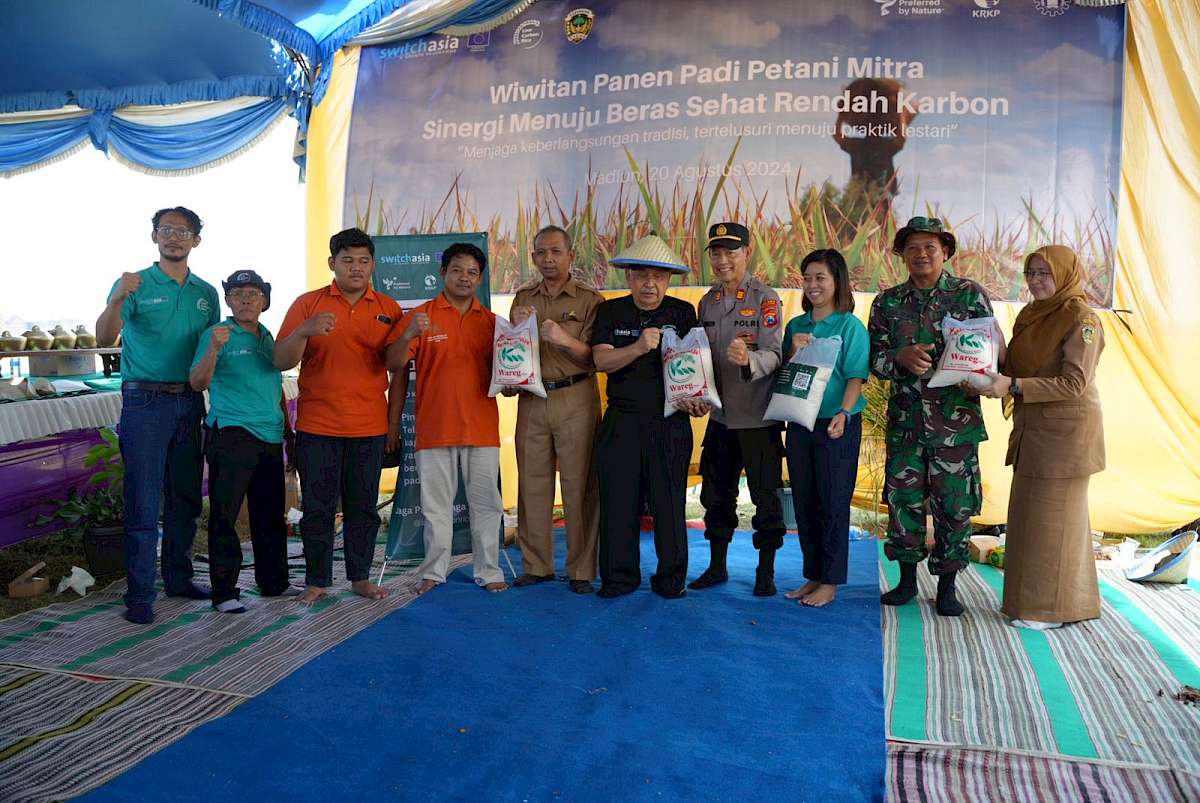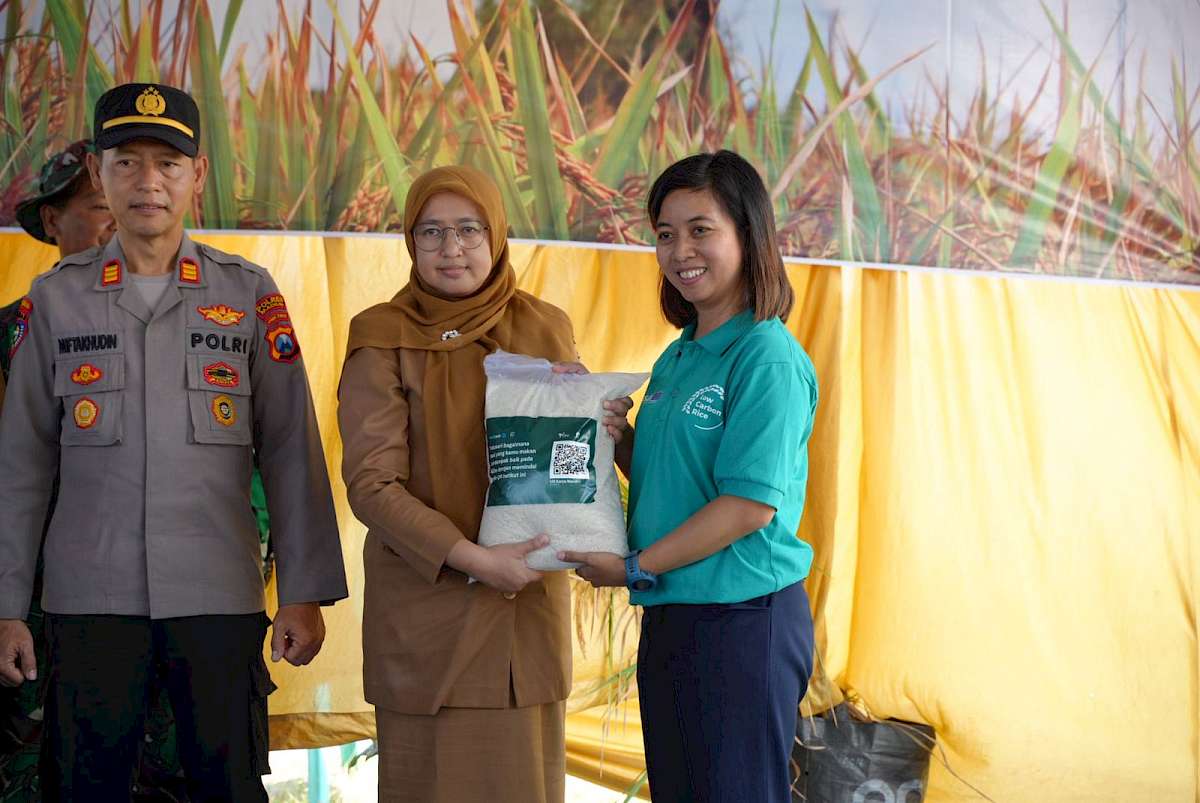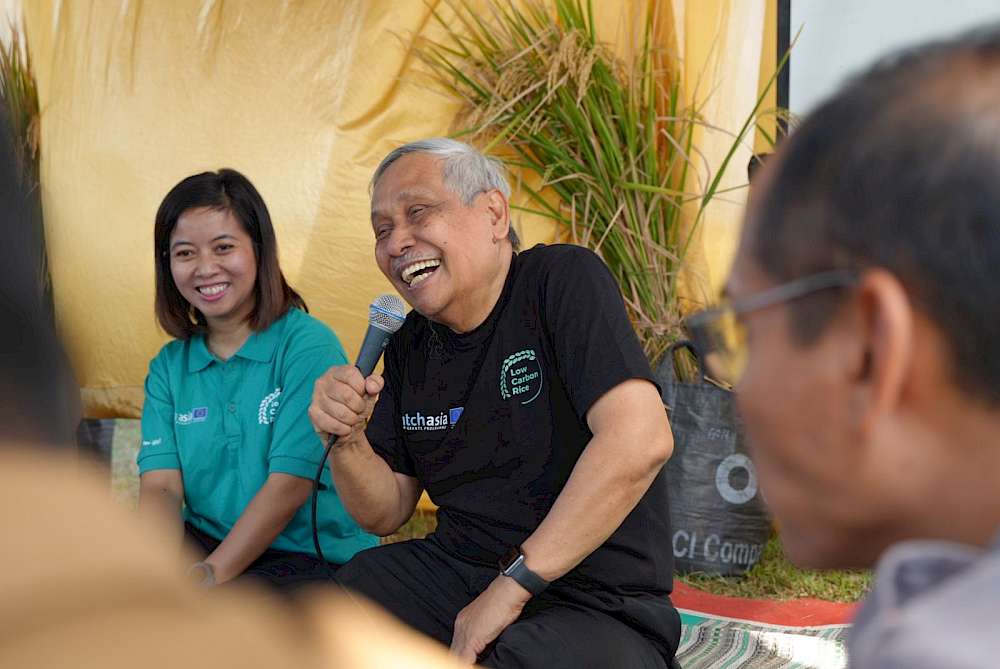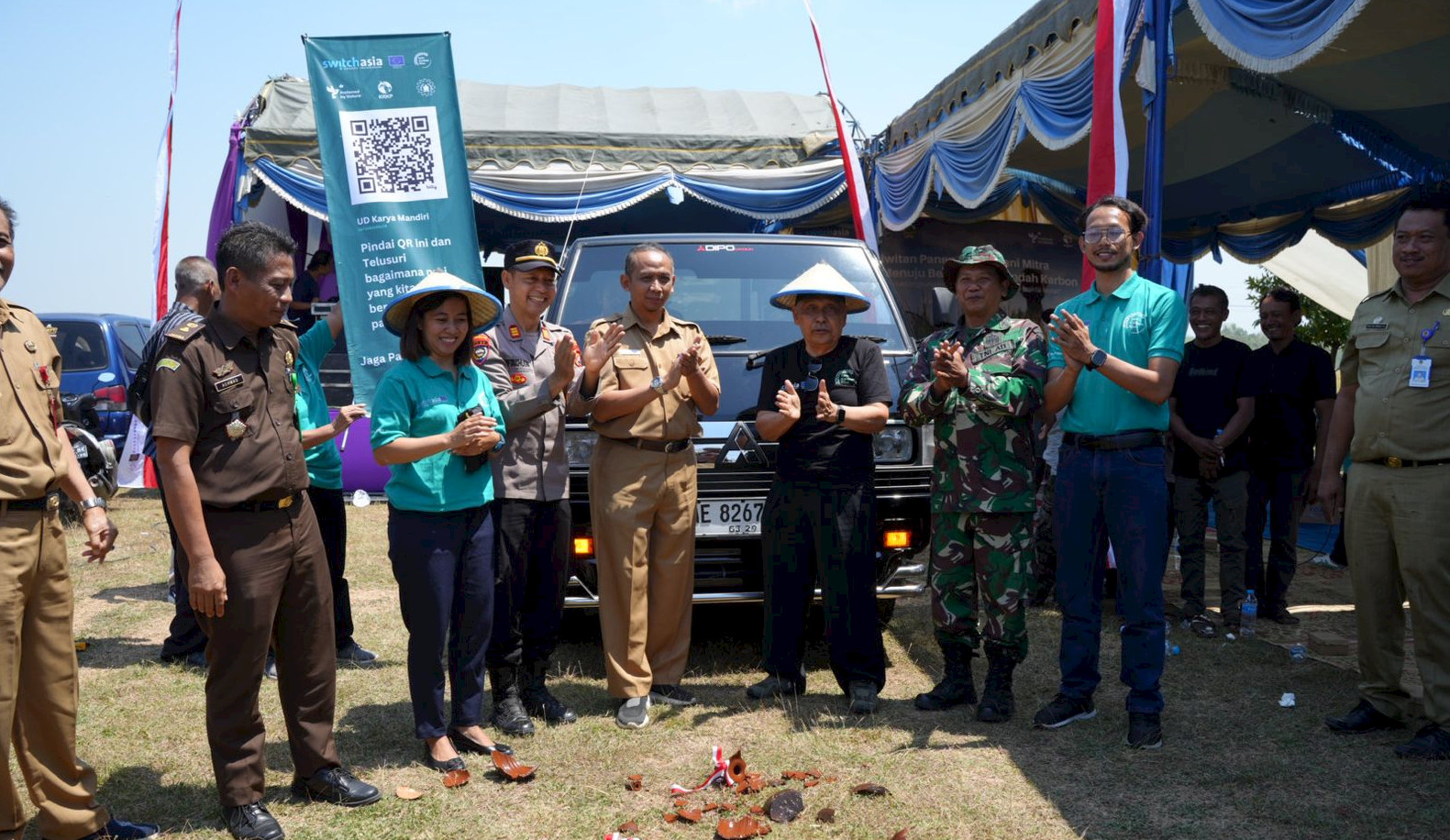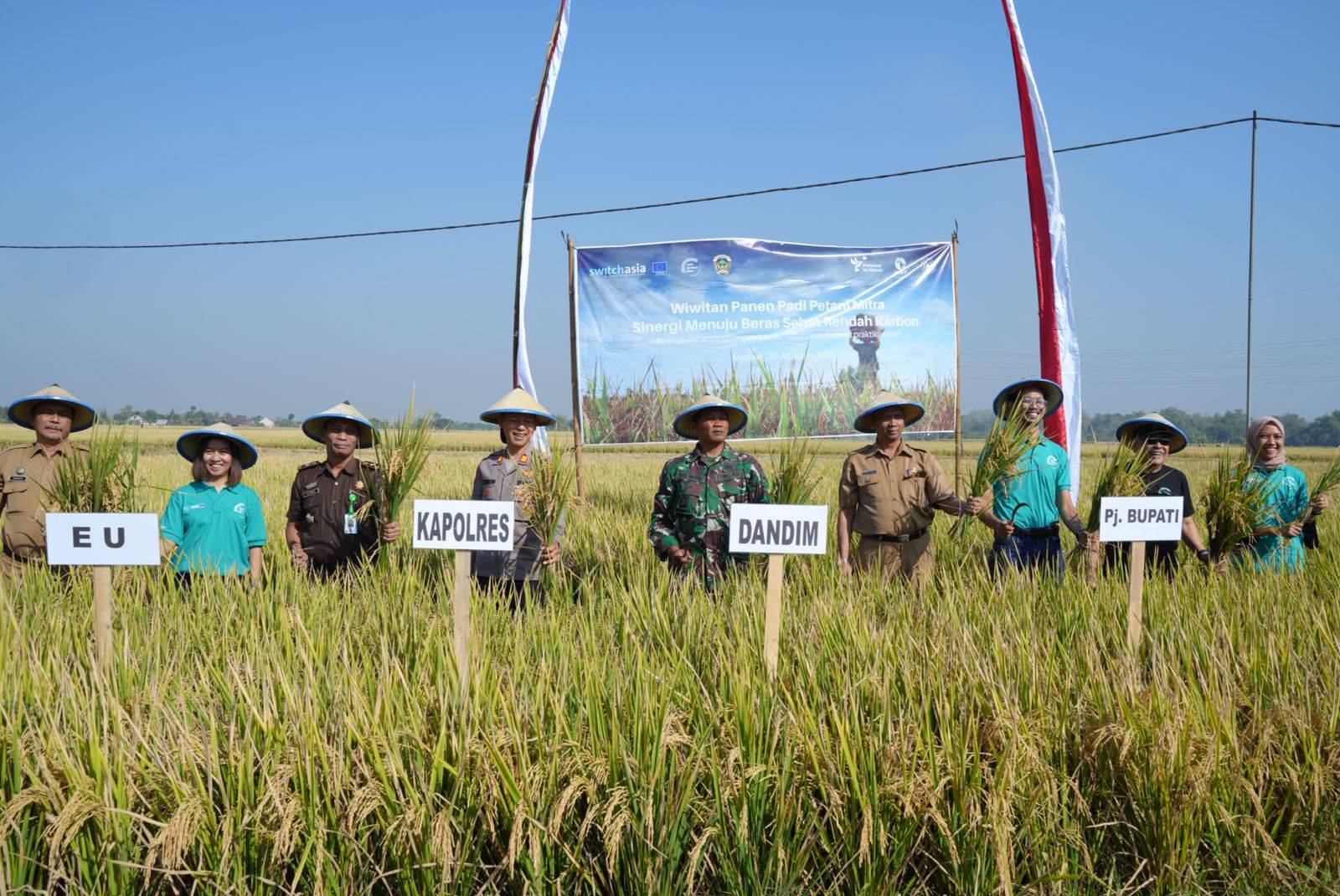
As part of a collaborative effort to promote low-carbon, healthy rice production, the EU funded SWITCH-Asia Low Carbon Rice Project hosted a partner farmers’ harvest celebration in Klumutan Village, Madiun Regency, on 20th August 2024. The event took place in the rice fields of the Tani Rejo farmer group (poktan), which partners with UD Sri Langgeng, a small rice mill supported by the Low Carbon Rice Project. Covering a total of 54 hectares, the Tani Rejo farmer group’s paddy fields have the potential to yield approximately 378 tons of rice grain.
I see this partnership as a significant step towards protecting our environment. By synergizing through partnerships, we can produce healthy rice in a low-carbon manner, said Acting Regional Secretary of Madiun Regency, Sodik Hery Purnomo, while opening the event.
The European Union (EU), as the funder of the Low Carbon Rice Project, also welcomed the rice harvest event of partner farmers in Madiun.
We see this collaboration between farmers and rice millers as strategic and a positive signal that complements various project achievements in the Madiun Regency area. We appreciate the support of the local government and stakeholders in Madiun, enabling this project to run smoothly and benefit both farmers and rice millers, said the EU Ambassador to Indonesia, H.E. Denis Chaibi.
The event commenced with the traditional “wiwitan” ceremony, a customary expression of gratitude for a bountiful rice harvest. Following the ceremony, participants engaged in a collaborative discussion session focused on advancing partnership models and exploring policies to further develop a sustainable rice value chain.
The harvest represents a concrete step for the project in strengthening the rice sector in Indonesia.
This collaboration model also emphasizes the importance of implementing climate-friendly and socially responsible rice production practices, such as switching from diesel to electric engines for the rice mills, and improving supply chain efficiency, which has the potential to increase income for farmers and small rice millers, said Lead Project Manager of the Low Carbon Rice Project, Angga Maulana.
At the post-harvest level, the Low Carbon Rice Project has successfully assisted 34 small rice millers in switching from diesel to electric engines, in addition to others currently in the process of doing so. Activities at these small rice mills include technical assistance by local facilitators, advocacy to the National Electricity Company (PLN), and capacity-building for rice mill owners.
The switch to electricity has also proven to be very beneficial for rice millers, with the potential for production cost efficiency reaching 40% and a potential reduction in emissions at the rice mill level by 80%, said Sutarto Alimoeso, Chairman of the Indonesian Rice Milling and Rice Entrepreneurs Association (PERPADI).
Support for more sustainable rice production practices in the Madiun area was also shown by the Village Community Empowerment Agency (Dinas PMD). The PMD Agency collaborated with the Low Carbon Rice Project rice mills through a partnership scheme to support rice production that maintains land quality, climate stability, and food supply security in the Madiun area.
These positive responses from various stakeholders are also the result of the sustainable rice forum initiated by the People's Coalition for Food Sovereignty (KRKP) for the Low Carbon Rice Project. This forum is the driving force that motivates various parties, especially the Madiun Regency Government representatives, to continue supporting the project. This is just the beginning of a long journey ahead. However, the harvest results from this production partnership demonstrate that Indonesian rice actors are increasingly ready to embrace sustainable rice production, concluded Angga Maulana.
